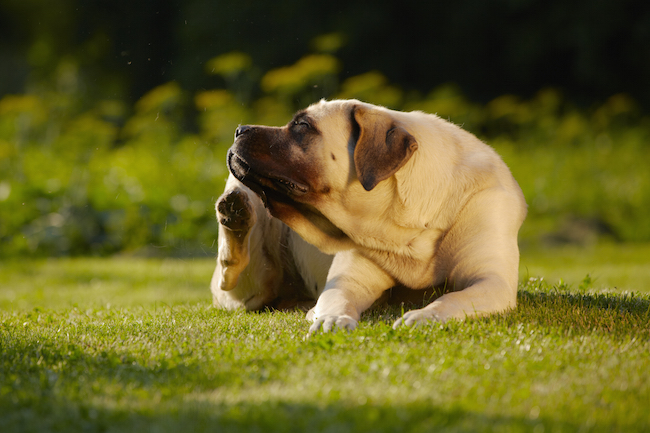
Usually, whenever someone says they have allergies, we think of hay fever, pollination, tissue boxes, sneezing, wheezing and runny noses. However, pets suffer from many kinds of allergies, and aside from atopy (inhaled allergens) and flea bite allergies, food allergies are the most common cause of reactions in pets. If your dog or cat is scratching his coat often or having digestive issues, it may be likely that his body is rejecting something in his diet. You may wonder why your pet is reacting so strongly to one measly bag of kibbles! Find out what is causing your dog’s rashes or nausea and how you can avoid the triggers.
What Causes Food Allergies
Nutrition-related allergies occur when an animal’s antibodies identify an agent in the food as foreign or harmful, and then respond in a negative way. Allergies can develop if a pet stays on one specific diet, or only eats one brand of pet food for a long time. Unless the quality of the food product is excellent, the pet is daily eating questionable meals with detrimental fillers and preservatives that do him more harm than good. Poor nutrition from cheap pet foods will lead to an abundance of health issues, and almost certainly food allergies as a result.
If a pet is genuinely allergic to a certain king of food, he will show skin irritation through rashes, hives and itchiness; and if the pet has an intolerance to a certain kind of food, his body may attempt to dispel it through vomiting or diarrhea. Food allergies can affect any breed of cat or dog, and (contrary to popular belief) irrespective of whether or not they have been spayed or neutered. Nutritional allergies may not begin manifesting until the age of 5-6 months or even up to the senior years of a pet’s life.
Food Allergy/Intolerance Symptoms
- Itchy skin (A pet certainly has an allergy problem if the itchiness cannot be cured by prescription steroid anti-itch ointments).
- Rashes
- Hives
- Ear infections/itchiness/yeast infections
- Vomiting
- Diarrhea
- Chronic Gas
- Abdominal discomfort/cramping
Many dogs react strongly to certain kinds of foods. Though this might not be the case with every animal, these foods often create allergic or inflammatory reactions from pets:
- Lamb
- Chicken
- Pork
- Egg
- Dairy
- Wheat
- Corn (and corn syrup)
- Soy
- Yeast
- Preservatives
- Artificial Coloring

